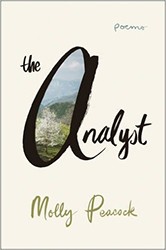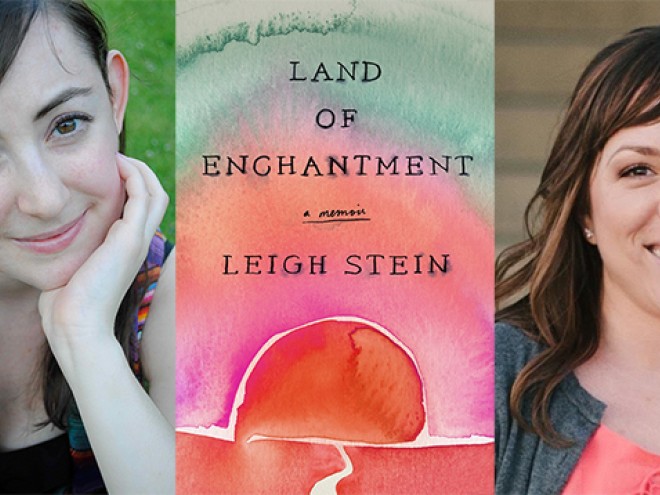
Molly Peacock is the author of The Analyst, a collection of poetry exploring her evolving relationship with Jewish psychoanalyst Joan Stein, With the release of the book today from W. W. Norton & Company, Molly will be guest blogging for the Jewish Book Council all week as part of the Visiting Scribe series here on The ProsenPeople.
I am a goyishe girl, age 9, returning to PS 88 in Buffalo, New York, just after New Year’s Day, 1956, hanging my snow-caked leggings up on a coatroom hook with all the other girls. My fourth grade class is almost exclusively Jewish — except for me, a Protestant, and two Catholics. In Show-and-Tell my girlfriends will show off the poodle skirts they got for Hanukkah, and I will show off the poodle skirt I got for Christmas.
1956 is the same year that my future psychotherapist, Joan Stein, one of the few Jewish women in her class, graduates from Radcliffe. When I meet her in 1974, I am about to be divorced and in despair. So will begin our 38-year psychoanalytic relationship. It will last until 2012, when a devastating stroke will force her to close her practice. Astonishingly, a new relationship will begin, one in which I get to watch the woman who helped me with every major decision of my life make the choices that will infuse her end game with the power and light of painting. All this is part of the backstory of The Analyst, a book of poems about this remarkable woman, about the power of art, and about how, post-analysis, an unlikely friendship began.
In my writing this week, I’m tracking Joan’s and my story, starting with my childhood, of course. My mother, a raven-haired Irish farm girl who married a Navy man with PTSD (though no one called those violent, alcoholic vets victims of war trauma then), determined that her daughter must have the best chance in life. She convinced my father and grandparents to buy a duplex in the north of Buffalo, where the public library is a wonderland, where kids catapult through elementary school, and where almost everyone is Jewish. I am the only goy in my Brownie troupe. After school I visit my friends’ houses where their bubbies dole out almond cookies, their sleeves slipping upwards to reveal the numbers on their arms. And in these houses, larger than mine, darker inside than mine, the light seeming not to come from lamps but from the polish on the massive mahogany furniture, I hear the stories about children who used their wits to survive.
Wits! I need my wits not to perish in a household where my mother instructs me always to put the knives away immediately after they are washed. You never know what my father, the man who tried to push her down the cellar stairs, who hurls plates, glasses, and beer bottles, shards flying, will do when drunk and out of control. Inside my house, I fear for my life. (Not that I mentioned this to anyone until I met my analyst.)
Meanwhile, mild-mannered fathers read the newspapers in my friends’ houses. Mothers take the time to lie down on the couch with a headache. Arguments ensue about the Rosenbergs. Bubbies plunk babkas on those mahogany tables. My friends are grilled about what they learned in school, and I am grilled, too, a little girl with a Jewish name, Molly. “I’m an Irish Molly,” I patiently explain. Stories of the camps unfold, including the story of a boy standing in line for the lethal showers who suddenly drops to the floor, using his wits to save his life:
As the line shuffled toward the gas chamber and the soap was doled out, the boy spied an abandoned mop and pail when commanded by an officer to deliver a message. The boy scrambled to the pail, picked up the mop and started swabbing. The line moved on, and the boy who seized his chance survived.
If only I could be like that boy, I thought. He became my example of kid resourcefulness. If only I could summon up his vigilance to protect myself. The difference between my friends and me is not only whether you get one bonanza of presents under tree or you stretch it out for eight nights. The difference is blue-collar violence.
In Boston, my future psychotherapist is also protecting herself, in quite a different way: by stalking out of an art class.
Eighteen years later I will tell her the story of the vigilant boy in the camps.
Molly Peacock is the author of six previous collections of poetry, including The Second Blush and Cornucopia: New and Selected Poems. Her poems are included in The Oxford Book of American Poetry and appear in leading literary journals internationally. President Emerita of the Poetry Society of America, she co-created Poetry in Motion, a program of placards on subways and buses. Awarded fellowships from the Ingram Merrill, Woodrow Wilson, and Leon Levy Foundations, the National Endowment for the Arts, and the Canada Council for the Arts, Peacock is also author of a biography, The Paper Garden: Mrs. Delany Begins Her Life’s Work at 72, and a memoir, Paradise, Piece by Piece. She is based in Toronto and New York.


